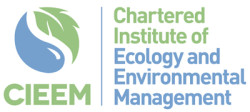The starting point for any assessment is to determine which ecological features or resources within the zone of influence are both of sufficient value to be included in the assessment and vulnerable to significant impacts arising from the project. Assessment of ecological impacts is required at the following stages: (1) scoping, (2) during the evolution of the project (in order to identify the need for impact avoidance and mitigation, and opportunities for enhancement), (3) after the mitigation strategies have been fully devised and their likely success considered, the residual impacts are assessed; and finally, (4) if significant negative impacts are still likely, it may be necessary to consider the need for and value of ecological compensation. Key stages in our approach to EcIA include:
- Scoping (undertaken in parallel with scoping for Environmental Impact Assessment, if applicable, and then iteratively as the EcIA progresses)
- Establishing the baseline, drawing on the results of botanical and protected species surveys
- Defining important ecological features – habitats, species, ecosystems
- Impact assessment: characterisation of impacts on important features, including assessment of residual and cumulative impacts after mitigation
- Devising avoidance, mitigation, compensation and/or enhancement measures, and a suitable monitoring framework
- Identifying consequences for decision-making in relation to the legal and policy framework
Brighton -based Urban Edge Environmental Consulting provides general and specialist surveys for a broad range of species and habitat types. We prepare Ecology chapters for EIA, undertake standalone Ecological Impact Assessments, devise ecological design and mitigation solutions, and provide habitat management and restoration advice. Our team has carried out ecological surveys and assessments for renewable energy projects, industrial developments, retail schemes, road transport projects, and mixed use and residential developments.


